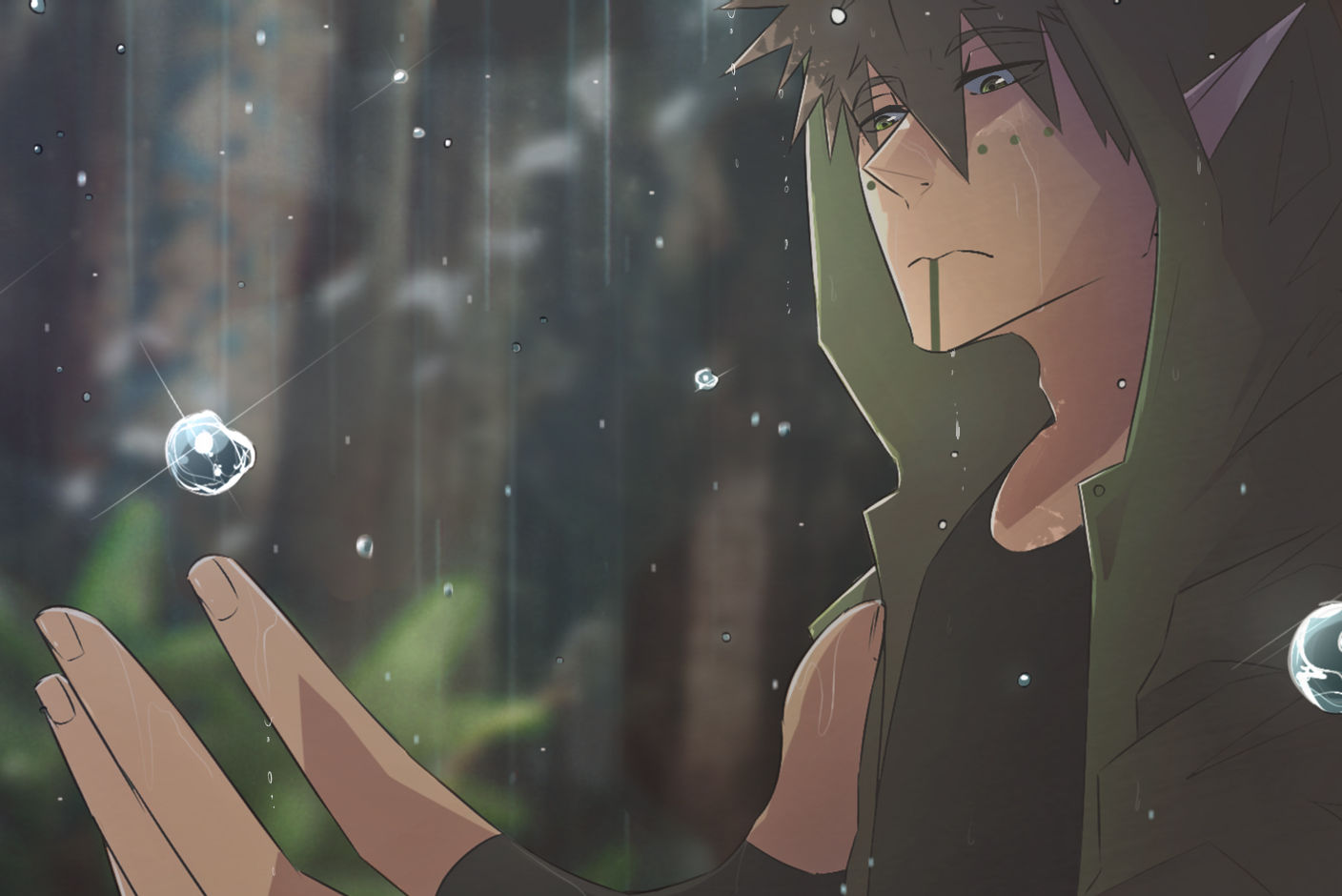Beserat Debebe Tells Exciting Pan-African Stories Through Comics

Image: Courtesy of Beserat Debebe
Running a successful Kickstarter campaign is quite an impressive feat. It requires a combination of creativity, careful timing, rewards, enough communication to keep backers informed but not overwhelmed with messages, coordination with vendors, and more than a dollop of luck to get noticed, gain support, and deliver on your promises.
Now imagine what it takes to run multiple Kickstarter campaigns and raise over $200,000. Just ask Houstonian Beserat Debebe of Etan Comics.
“In the beginning, I mainly was making the book just for myself, in a way. Something like little me, kid me wanted to see, and it resonated a lot with people,” he says.
The comic book in question, Jember, is about an unemployed Ethiopian college grad who develops superpowers after encountering an “ancient biotech relic.” Debebe claims that the title character also happens to be Ethiopia’s first superhero. He began writing the comic in 2017 and officially launched the Etan Comics publishing company the following year. Kickstarters for that and another comic, the fantasy epic Hawi, went up in 2021.
The Jember campaign ended at 344 percent funded, Hawi at 339 percent—and all eight of Debebe’s subsequent crowdfunding initiatives similarly exceeded the initial ask. A collected edition of two Hawi issues concluded with an impressive 537 percent of its goal. Every campaign so far has also received Kickstarter’s Project We Love label; crowdfunders love this designation since it increases the chances of raising enough money to complete their projects.
“There was a huge desire for this content that came out after [the movie] Black Panther,” he says. “I think the timing of that also helped signal our content and our work...whether it’s by younger folks or kids who enjoy these type of stories, or a more adult audience.”
For Jember, Debebe partnered with Stanley Obende for the line art, Ringo Award nominee Toyin Ajetunmobi for the colors, and editor Bezawit Getachew. He would later team up with Obende and Ajetunmobi once again for Hawi. Etan Comics advertises itself as a Pan-African publisher that provides opportunities for comics creators, including artists, editors, writers, colorists, and letterers, to tell superhero, sci-fi, and fantasy narratives based on the continent’s vast array of peoples and perspectives.
“Our main purpose and mission is to bring out the talent that is on the African continent or in the African diaspora that has been looking for opportunities to tell these stories based off of their culture and their folklore,” says Debebe, who himself was born and raised in Addis Ababa, Ethiopia. “I personally work with Ethiopian institutions to find artists there that are interested.”
He also partners with arts organizations in Nigeria to source talent, and meets with aspiring and established comics creators in Facebook groups, asking them to pitch their ideas.
As a kid, Debebe watched the various animated series produced by Marvel and DC, and read Tintin and Archie comics. He started reading manga after moving to the United States, citing it as a turning point in his understanding of storytelling. But it wasn’t until adulthood, after earning a degree in aerospace engineering and working in the industry for a while, when the possibility of actually working in comics drifted to the forefront of his mind.
“After a few years into the corporate world, I started getting back in touch with this side of me, kid me, and reading comics again. One thing that felt like it was missing since I was young, that I wished so desperately to see, was a lot of stories and art and animated content that is based in my Ethiopian heritage and folklore and history,” Debebe says. “I realized that that wouldn’t be happening anytime soon.”
In the absence of the stories he wanted, he decided to go ahead and write them himself. Jember received such a warm and positive response that he felt inspired to continue making comics and bringing in other creatives who shared his vision. He estimates that more than 30 creators have been a part of the journey over the past seven years. The crowdfunding campaigns make it possible to launch new titles and gauge audience interest in what they want to read next.
Etan Comics are available in both English and Amharic via its website, but they’ve also been published in Igbo, Swahili, Somali, and other Indigenous African languages, as well as Arabic, French, Greek, Spanish, and German. Debebe says that they’ve printed in about a dozen languages total, though they’re always looking to expanding that list to reach even more readers.
“My main goal is to help as many Black kids, brown kids, to connect with their rich heritage as possible, to empower as many African artists and creatives as possible, and to pass down and share our heritage and preserve it for the next generation,” he says.
Children and adults interested in learning more about Amharic and the Ethiopian history behind Debebe’s stories can also pay a visit to the official Etan YouTube channel for some brief lessons in both. For example, Hawi is based on traditional tales of the warrior queen Gudit (also known as Yodit), an inspiration Debebe discusses in several interviews. Kickstarter backers and newsletter subscribers also enjoy exclusive access to Debebe’s instructional videos on the Amharic alphabet, basic vocabulary, and grammar. Houstonians can find him around the city selling Etan books at anime and pop culture conventions such as Comicpalooza, or at Third Ward’s friendly, bright Gulf Coast Cosmos Comicbook Co. shop. He also makes classroom visits for educators wanting to teach their students lessons on comics, Amharic, or Ethiopia.

Image: Courtesy of Beserat Debebe
“There’s a huge, huge desire for folks in the global audience to learn Japanese, and that is primarily because of manga and anime. People are drawn into it by the storytelling, and they start falling in love with the language,” Debebe says. “I feel the same way about the power of Ethiopian comics, African comics, and sharing our culture and sharing our languages and really showcasing the beauty, the power of our script.”
Ultimately, he sees stories as a way of passing around important knowledge. And while he loves making comics, Etan’s founder wants to someday expand the worlds he and his fellow creators craft together to the animated sector. Debebe is looking into a few studios aligned with his mission, but for now the focus continues centering on the printed page and using it to tell more tales from more African cultures.




